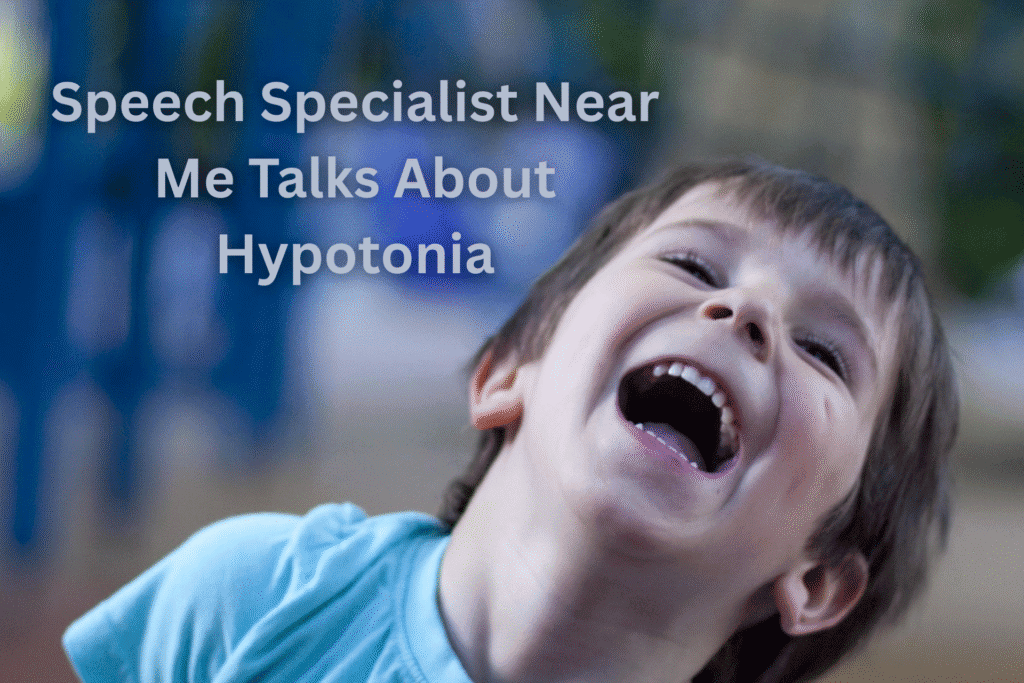Speech Specialist Near Me Talks About Hypotonia
How Low Muscle Tone Affects Speech
Hypotonia refers to low muscle tone. It does not mean, however, that the muscles are weak per se but only that they lack firmness. Hypotonic children are generally feeling floppy or loose when picked up. The condition increases with growth and can affect the posture, balance, and coordination. These issues can also apply to speech muscles, as well, according to a speech specialist near me.

Why It Affects Speech
Effective use of muscles is required to produce clear speech, as explained by a speech specialist near me. The lips, tongue, and jaw must work together. Such movements are more difficult to control when the individual has low muscle tone. Children can be unable to create specific sounds or maintain a speech level. Talking a lot, this case, can also be exhausting since it requires additional effort.
Common Difficulties
Children with hypotonia may face a range of speech difficulties. This may include slower speech than that of peers in the same age group as well as slurred or unintelligible words. Additionally, there may also be difficulty biting or swallowing. This leads to exhaustion due to excessive effort needed when speaking, biting, and swallowing. These difficulties affect both communication and confidence in the child’s daily life.
Effects on Language Growth
Children will talk less when it becomes difficult or tiresome to do so. This, therefore, negatively restricts practice and delays language development. Additionally, it can also affect social development especially when the speech issue makes a child believe he/she is misunderstood. As communication and self-esteem are significant, a speech specialist near me explains that early help is important to ensure both are achieved on time by the child.
Role of Speech Therapy and Support from Families and Schools
Speech and language therapy provide specific assistance. A speech specialist near me can facilitate sessions where they can practice with fun activities to build up the oral muscles and improve coordination. This can include blowing bubbles, chewing practice, or tongue movements. As children mature, parents and teachers also teach them strategies to speak more clearly.
Outside sessions, parents, teachers, and caregivers also play vital supporting roles. Children can be assisted by encouraging them to practice at home. Parents, caregivers, and teachers also need to model clear speech, and allow additional time to respond. Moreover, parents and teachers encourage celebrating the small improvements to motivate children. As this progresses, adjustments to sessions and learning environments in home and school may also be needed to minimize and relieve frustration.
Moving Forward with Support from A Speech Specialist “Near Me”
Regular therapy and support will help children with hypotonia make steady progress. Each clearer word or longer phrase adds to their confidence. Here at Speech Link, our team of expert, experienced and professional Speech-Language Therapists work with your family to assist your hypotonic child.
